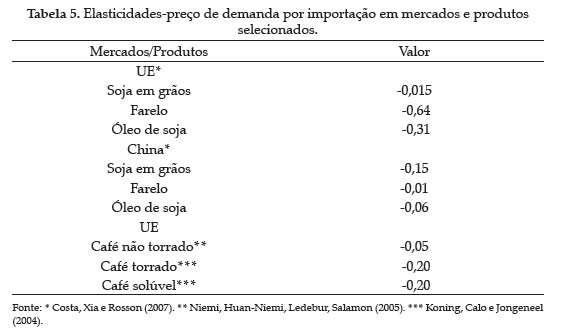The tariff escalation, where the import duties on components or raw materials are lower, and move progressively higher on semi-finished goods upwards to the finished goods, stimulates the imports of primary commodities rather than processed products. This article measures the gains to Brazil with the elimination of the tariff escalation for coffee products in the European Union (EU), and soybean products in China and in the EU, comparing these results with those of an escalation reduction proposed in the Doha Round of the WTO (World Trade Organization). For that purpose, tariff reductions have been simulated and the impact upon trade has been evaluated with the application of partial equilibrium modeling. The results indicate that trade under the Doha round of the WTO can reduce the tariff escalation although it is not phased out, which would require greater tariff cuts. The impacts upon trade have been higher in the simulation of an elimination of tariff escalation than in its reduction, as expected. It was possible to quantify the trade flows that Brazil would not gain if the Doha proposal for tariff escalation reduction was adopted. The EU imports of coffee and soybean processed products from Brazil could be 75.4 percent higher with the elimination of the tariff escalation than under its reduction according to Doha negotiations.
Tariff escalation; China; EU; soybean; coffee































